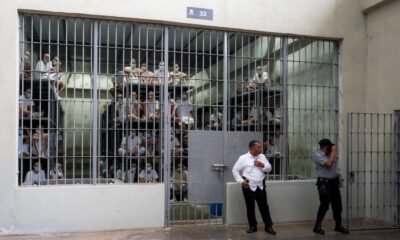border
9th Circuit Reverses Conviction of ‘Rip-Crew’ Associate in BP’s Brian Terry Murder Case

A federal appeals court has overturned the 2019 conviction of Heraclio Osorio-Arellanes, a Mexican national implicated in the murder of Border Patrol Agent Brian Terry during a violent encounter near Nogales, Arizona, in December 2010. The three-judge panel of the 9th Circuit Court of Appeals found that Osorio-Arellanes’ confession, obtained after a lengthy manhunt and interrogation, violated his constitutional rights.
During a trial held in Tucson, U.S. prosecutors presented the confession as crucial evidence against Osorio-Arellanes. However, he contested his conviction, claiming his attorney in Mexico, Juan Salvador Pimentel, provided misleading advice that influenced his decision to confess. In a narrow 2-1 ruling, the court agreed, stating that Pimentel’s representation was inadequate, infringing upon Osorio-Arellanes’ Sixth Amendment rights.
Judge Michael D. Hawkins, who authored the majority opinion, detailed that the confession was improperly admitted during the trial. The ruling potentially paves the way for a retrial, where the confession may not be introduced as evidence. Family members of Terry expressed their dismay about the ruling, urging prosecutors to pursue a new trial to secure accountability for the crime.
On December 14, 2010, Osorio-Arellanes was part of a “rip crew,” a group notorious for ambushing drug smugglers. During a confrontation with Border Patrol agents, Osorio-Arellanes and his crew exchanged fire, ultimately leading to Terry’s death from gunshot wounds. At the 2019 trial, Osorio-Arellanes was convicted on multiple counts, including first-degree murder, and sentenced to life in prison.
Judge Hawkins emphasized the case’s complexity, indicating the chaos of the firefight and the subsequent flight of Osorio-Arellanes back to Mexico. His confession was given during interrogation by U.S. authorities at a Mexico City prison. Despite the severity of the charges, the panel found that Pimentel’s advice to Osorio-Arellanes was severely flawed, misrepresenting the legal implications of confessing to robbery.
The panel also dismissed the government’s assertion that Pimentel acted within the bounds of U.S. legal standards. According to the ruling, Pimentel’s incompetence not only compromised Osorio-Arellanes’ right to counsel but also unjustly affected the outcome of the case. This fosters a precedent regarding the importance of qualified legal representation for foreign nationals facing U.S. charges.
In dissent, Judge Andrew D. Huwitz argued that Osorio-Arellanes had received adequate Miranda warnings and suggested that the ruling ventured into untested legal waters. He expressed a preference for further evidentiary hearings to evaluate Osorio-Arellanes’ claims regarding Pimentel’s performance.
The 2010 incident, resulting in Terry’s death, was further complicated by the controversial “Fast and Furious” operation, which investigated the illicit trafficking of firearms that ended up in Mexico. The fallout from this operation raised significant scrutiny over the government’s handling of gun sales, ultimately leading to a congressional investigation.
Brian Terry’s family remains committed to seeking justice, urging that the renewed trial effort reflects the ongoing fight for accountability. Ralph Terry, Brian’s uncle, criticized the current state of border security, linking it to the systemic issues that contributed to his nephew’s death. He called for a renewed commitment to effective border policies to honor the sacrifices made by those in law enforcement.


















